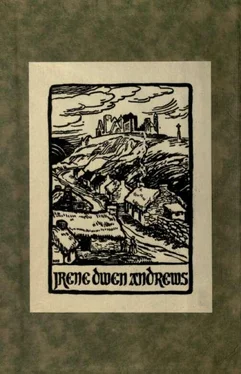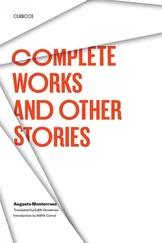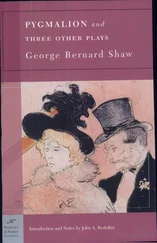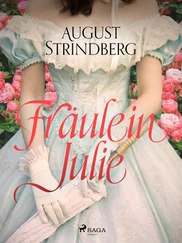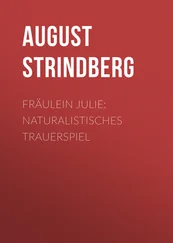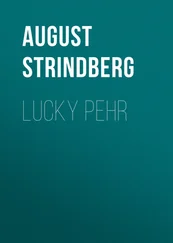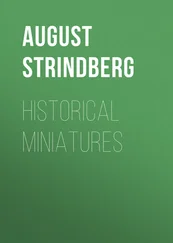August Strindberg - Miss Julie and Other Plays
Здесь есть возможность читать онлайн «August Strindberg - Miss Julie and Other Plays» весь текст электронной книги совершенно бесплатно (целиком полную версию без сокращений). В некоторых случаях можно слушать аудио, скачать через торрент в формате fb2 и присутствует краткое содержание. Город: New York, Год выпуска: 1924, Издательство: Boni and Liveright, Inc., Жанр: Драматургия, на английском языке. Описание произведения, (предисловие) а так же отзывы посетителей доступны на портале библиотеки ЛибКат.
- Название:Miss Julie and Other Plays
- Автор:
- Издательство:Boni and Liveright, Inc.
- Жанр:
- Год:1924
- Город:New York
- ISBN:нет данных
- Рейтинг книги:5 / 5. Голосов: 1
-
Избранное:Добавить в избранное
- Отзывы:
-
Ваша оценка:
- 100
- 1
- 2
- 3
- 4
- 5
Miss Julie and Other Plays: краткое содержание, описание и аннотация
Предлагаем к чтению аннотацию, описание, краткое содержание или предисловие (зависит от того, что написал сам автор книги «Miss Julie and Other Plays»). Если вы не нашли необходимую информацию о книге — напишите в комментариях, мы постараемся отыскать её.
Miss Julie and Other Plays — читать онлайн бесплатно полную книгу (весь текст) целиком
Ниже представлен текст книги, разбитый по страницам. Система сохранения места последней прочитанной страницы, позволяет с удобством читать онлайн бесплатно книгу «Miss Julie and Other Plays», без необходимости каждый раз заново искать на чём Вы остановились. Поставьте закладку, и сможете в любой момент перейти на страницу, на которой закончили чтение.
Интервал:
Закладка:
Dresser.Do you know what I think? She’s met someone or other who’s come here during the last week. Come, we’ll just toddle down to the post office and find out about the latest arrivals.
Mother.Yes, let’s do that. I say, Helen, just mind the house a minute. We’re only going down to the post for a moment.
Daughter.Yes, mamma.
Mother.[To DRESSER.] It’s just as though I’d dreamed all this before.
Dresser.Yes, dreams come true sometimes—I know that all right—but not the nice ones.
[Exeunt R.]
SCENE III
[DAUGHTER gives a nod out of the window; LISE enters. She wears a tennis costume quite white, and a white hat.]
Lise.Have they gone?
Daughter.Yes; but they’re soon coming back.
Lise.Well, what did your mother say?
Daughter.I haven’t even had the pluck to ask her. She was in such a temper.
Lise.Poor Helen! So you Can’t come with us on the excursion? And I was looking forward to it so much. If you only knew how fond I am of you. [Kisses her.]
Daughter.I you only knew, dear, what these days have meant to me since I’ve made your acquaintance and visited your house—have meant to a girl like me, who’s never mixed with decent people in her whole life. Just think what it must have been for me. Up to the present I’ve been living in a den where the air was foul, where shady, mysterious people came in and out, who spied and brawled and wrangled, where I have never heard a kind word, much less ever got a caress, and where my soul was watched like a prisoner. Oh, I’m talking like this about my mother, and it hurts me! And you will only despise me for it.
Lise.One can’t be made responsible for one’s parents.
Daughter.No; but you’ve got to pay the penalty for them. A»t any rate they say that very often one doesn’t find out before the end of one’s life the kind of people one’s own parents, with whom one’s lived all one’s life, have really been. And I’ve picked up this as well, that even if one does get to hear about it one doesn’t believe a word.
Lise.[Uneasily.] Have you heard anything?
Daughter.Yes. When I was in the Bath-house three days ago I heard through the wall what people were saying about my mother. Do you know what it was?
Lise.Don’t bother about it.
Daughter.They said my mother had been just a common creature! I wouldn’t believe it, I won’t yet believe it. But I feel that it is true; it all fits in—to make it probable—and I am ashamed—ashamed of going near her, because I think that people stare at us— that the men throw us looks. It’s too awful. But is it true? Tell me if you think that it’s true?
Lise.People tell so many lies—and I don’t know anything.
Daughter.Yes, you do know—you do know something. You won’t tell me, and I thank you for it; but I am equally miserable whether you tell me or whether you don’t—
Lise.My darling friend, knock that thought out of your head and come home to us—you’ll find you’ll get on splendidly with everyone. My father arrived early this morning. He asked after you, and wanted to see you—I ought, of course, to tell you they have written to him about you—and Cousin Gerhard as well, because I think—
Daughter.Yes, you—you have a father and I had one too, when I was still quite, quite tiny.
Lise.What became of him, then?
Daughter.Mother always says he left us because he was a bad lot.
Lise.It’s hard to find where the truth lies. But—I tell you what, if you come home to us now you’ll meet the director of the Imperial Theater, and it’s possible it might be a question of an engagement.
Daughter.What do you say?
Lise.Yes, yes—that’s it. And he takes an interest in you—I mean Gerhard—and I have made him take an interest in you, and you know quite well what trifles often decide one’s whole life; a personal interview, a good recommendation at the right moment—well, now, you can’t refuse any longer, without standing in the way of your own career.
Daughter.Oh, darling, I should think I did want to come. You know that quite well; but I don’t go out without mamma.
Lise.Why not? Can you give me any reason?
Daughter.I don’t know. She taught me to say that when I was a child. And now it’s got deeply rooted.
Lise.Has she extracted some promise from you?
Daughter.No, she didn’t have any need to do that. She just said “Say that!” and I said it.
Lise.Do you think then that you’re doing her a wrong if you leave her for an hour or two?
Daughter.I don’t think that she would miss me, because when I am at home she’s- always got some fault to find with me. But I should find it painful if I went to a house when she wasn’t allowed to come too.
Lise.Do you mean to say you’ve thought of the possibility of her visiting us?
Daughter.No—God forgive me, I never thought of it for a moment.
Lise.But supposing you were to get married?
Daughter.I shall never get married.
Lise.Has your mother taught you to say that as well?
Daughter.Yes, probably. She has always warned me of men.
Lise.Of married men as well?
Daughter.Presumably.
Lise.Look here, Helen, you should really emancipate yourself.
Daughter.Ugh! I haven’t the faintest desire to be a new woman.
Lise.No, I don’t mean that. But you must free yourself from a position of dependence which you have grown out of, and which may make you unhappy for life.
Daughter.I scarcely think I shall ever be able to. Just consider how I’ve been tied down to my mother since I was a child; that I’ve never dared to think a thought that wasn’t hers, have never wished anything but her wishes. I know that it’s a handicap; that it stands in my way, but I can’t do anything against it.
Lise.And if your mother goes to rest, one fine day, you’ll be all alone in the world.
Daughter.That’s how I shall find myself.
Lise.But you’ve got no set, no friend; and no one can live as lonely as all that. You must find some firm support. Have you never been in love?
Daughter.I don’t know. I’ve never dared to think of anything like that, and mother has never allowed young men even to look at me. Do you yourself think of such things?
Lise.Yes. If anyone’s fond of me I should like to have him.
Daughter.You’ll probably marry your cousin Gerhard.
Lise.I shall never do that—because he does not love me.
Daughter.Not love you?
Lise.No, because he’s fond of you.
Daughter.Me?
Lise.Yes—and he has commissioned me to inquire if he can call on you.
Daughter.Here? No, that’s impossible. And besides, do you think I would stand in your way? Do you think I could supplant you in his regard, you who are so pretty, so delicate. [Takes LISE’S hand in hers.] What a hand! And the wrists! I saw your foot when we were in the Bath-house together. [Falls on her knees before LISE, who has sat doun.] A foot on which there isn’t even a crooked nail, on which the toes are as round and as rosy as a baby’s hand. [Kisses LISE’S foot.] You belong to the nobility—you’re made of different stuff from what I am.
Читать дальшеИнтервал:
Закладка:
Похожие книги на «Miss Julie and Other Plays»
Представляем Вашему вниманию похожие книги на «Miss Julie and Other Plays» списком для выбора. Мы отобрали схожую по названию и смыслу литературу в надежде предоставить читателям больше вариантов отыскать новые, интересные, ещё непрочитанные произведения.
Обсуждение, отзывы о книге «Miss Julie and Other Plays» и просто собственные мнения читателей. Оставьте ваши комментарии, напишите, что Вы думаете о произведении, его смысле или главных героях. Укажите что конкретно понравилось, а что нет, и почему Вы так считаете.
